Saint of the Day – 17 September – St Satyrus of Milan (c335-c378) Confessor, Layman. Older brother of St Aurelius Ambrose (340-397) Father and Doctor and St Marcellina (c330-c398) Consecrated Virgin. Born as Uranio Satiro, probably in Trier, Germany and died in 378 in Milan of natural causes. Patronages – of Sacristans of the Archdiocese of Milan.
The Roman Martyrology reads today: “At Milan, the departure from this world of St Satyrus, Confessor, whose distinguished merits are mentioned by his brother, St Ambrose.”
Our only sources for Satyrus’ life are two orations delivered by his brother, one on the day of his death and the other, a week later. We know that he was the second of their parents’ three children, born after their sister, Marcellina; this puts his birth somewhere around 335, before his brother’s in 340, at either Trier, where their father reigned as Governor of a Roman Province, or at Rome. Being of the Senatorial Aristocracy, both brothers followed in the path of their father’s career and served as Governors of Roman Provinces but that assigned to Satyrus is unknown.
In 374, when St Ambrose was appointed as the Bishop of Milan, his brother left public office in order to help him with the administration of the Diocese, as well as to care for their sister and the family patrimony. St Ambrose praises him for his chastity in terms that clearly indicate that he was not married.
More than once, these duties required Satyrus to travel to Africa. Like many men of his class and period, whose public responsibilities were difficult to reconcile with the discipline of a Christian life, he long remained a Catechumen. (St Ambrose himself was a Catechumen at the time of his election as Bishop by popular acclamation. The Ambrosian Rite adds a commemoration of his Baptism to the Mass of St Andrew the Apostle on 30 November and keeps his principal Feast only a week later, on the day of his Episcopal Ordination). Ambrose, however, notes the following episode, in proof of his strong faith.

It is kept in the Chapel dedicated to him, where his Relics were formerly kept, also within the Basilica of St Ambrose.
On Satyrus’ return from the last of his African journeys, his ship was wrecked on shoals, just off the coast of either Sicily or Sardinia. Before jumping off the boat, one of his fellow passengers gave him, at his request, a small piece of the Blessed Sacrament, which he then wrapped up in a small cloth and fastened around his neck. St Ambrose attributes his safe deliverance from the sea, to this, noting that Satyrus’ faith in God was so strong that he did not even bother to grab onto one of the planks of the broken vessel. After safely reaching land, he decided to be Baptised. He had, however, evidently already contracted the unknown disease which would take his life shortly thereafter. Having returned to Milan, he died in either 378 or 379 in the arms of his two siblings.
Devotion to St Satyrus is first attested in the 9th Century, when Anspert, Archbishop of Milan, built a small Church dedicated to him, his brother and St Silvester. This was later absorbed into a Church constructed by the Architect Donatello Bramante in 1476-1482 which is still, to this day, known as “St Mary near St Satyrus.” His name first appears in Liturgical books of the Ambrosian Rite in the 10th Century. In view of his role as his brother’s assistant in the administration of the Diocese, he is traditionally honoured in Milan as the Patron Saint of Sacristans.

The story told above about the shipwreck, forms a large part of the Ambrosian Preface for the Mass of St Satyrus:
“Truly it is worthy… eternal God, unceasingly praising Thy glory and proclaiming Thy greatness in Thy Saints.
Who didst grant Thy blessed Confessor, Satyrus, such an abundance of virtues that he, having become, in many affairs, the colleague of his brother, the glorious Bishop Ambrose, the foremost Doctor and teacher of the Churches, was, for his diligence, deemed a most faithful and excellent champion of Christ, Thy Son.
For while yet in the first service of the Faith, he so distinguished himself that, amid the waves of the sea, when he would have perished miserably by the wreck of his ship, although he was not yet washed by holy Baptism, he still did not lack for trust in Thy help.
Therefore, he placed the Sacrament of the Lord’s Body, enclosed in a cloth, around his neck and did not hesitate, to entrust himself, to the frothing sea, supported by such an oar.
And Thy, most mighty Right Hand which in the waves lifted up Peter, the Prince of the Apostles, lest he drown, with like power also brought this man safe and unharmed to the shore.
This, O Lord, is the working of the fullness of Thy might.
Through the same Christ our Lord.
Through Whom the Angels praise Thy majesty…” (GREGORY DIPIPPO)







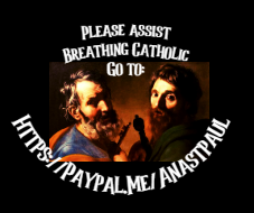





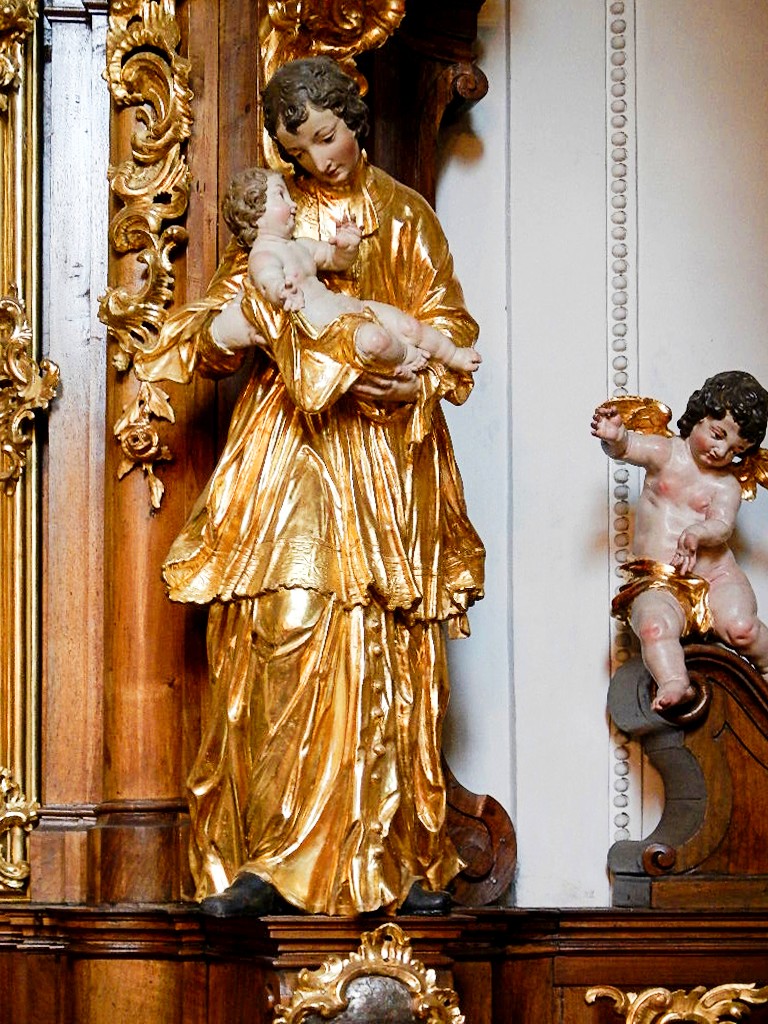



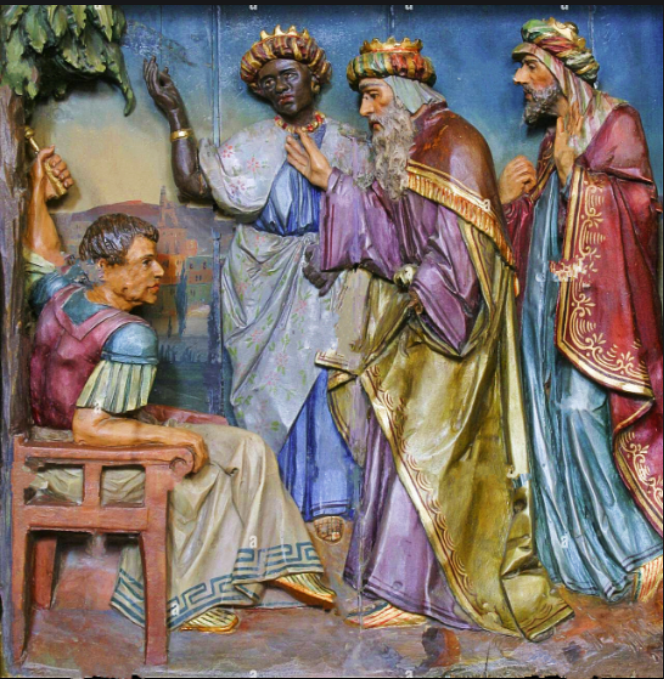














 With another young aspirant, he was waiting in the parlour to be introduced, when he saw in the garden a coadjutor Brother turning over the ground in the garden. He proposed to his companion to go and help him, saying: Could we begin our religious life better than with an act of humility and charity? And with no hesitation, both went to offer their assistance. How many young persons in that situation would have thought of such an offer? This incident reveals the profound charity and interior peace which characterised this young religious at all times.
With another young aspirant, he was waiting in the parlour to be introduced, when he saw in the garden a coadjutor Brother turning over the ground in the garden. He proposed to his companion to go and help him, saying: Could we begin our religious life better than with an act of humility and charity? And with no hesitation, both went to offer their assistance. How many young persons in that situation would have thought of such an offer? This incident reveals the profound charity and interior peace which characterised this young religious at all times.
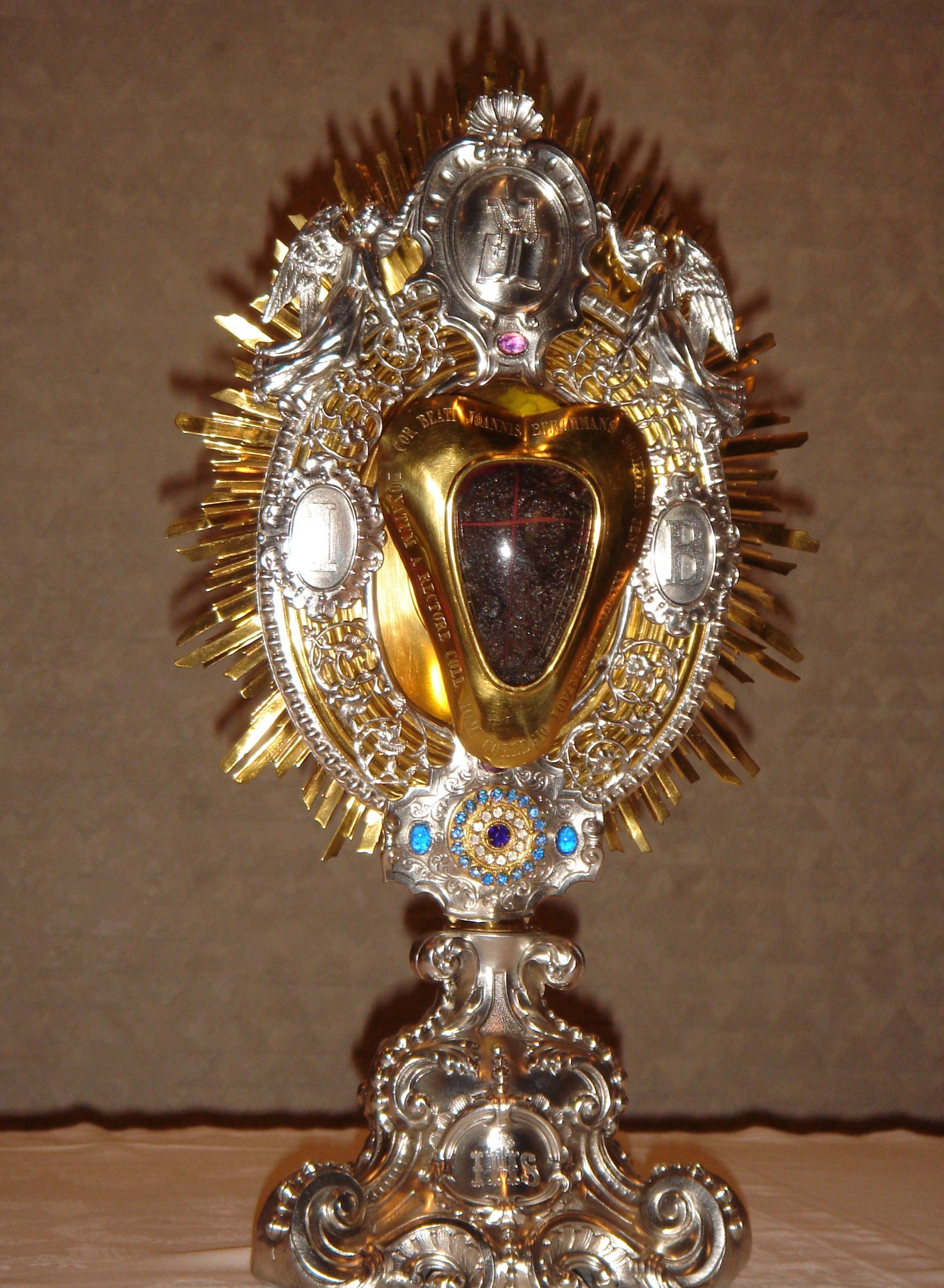

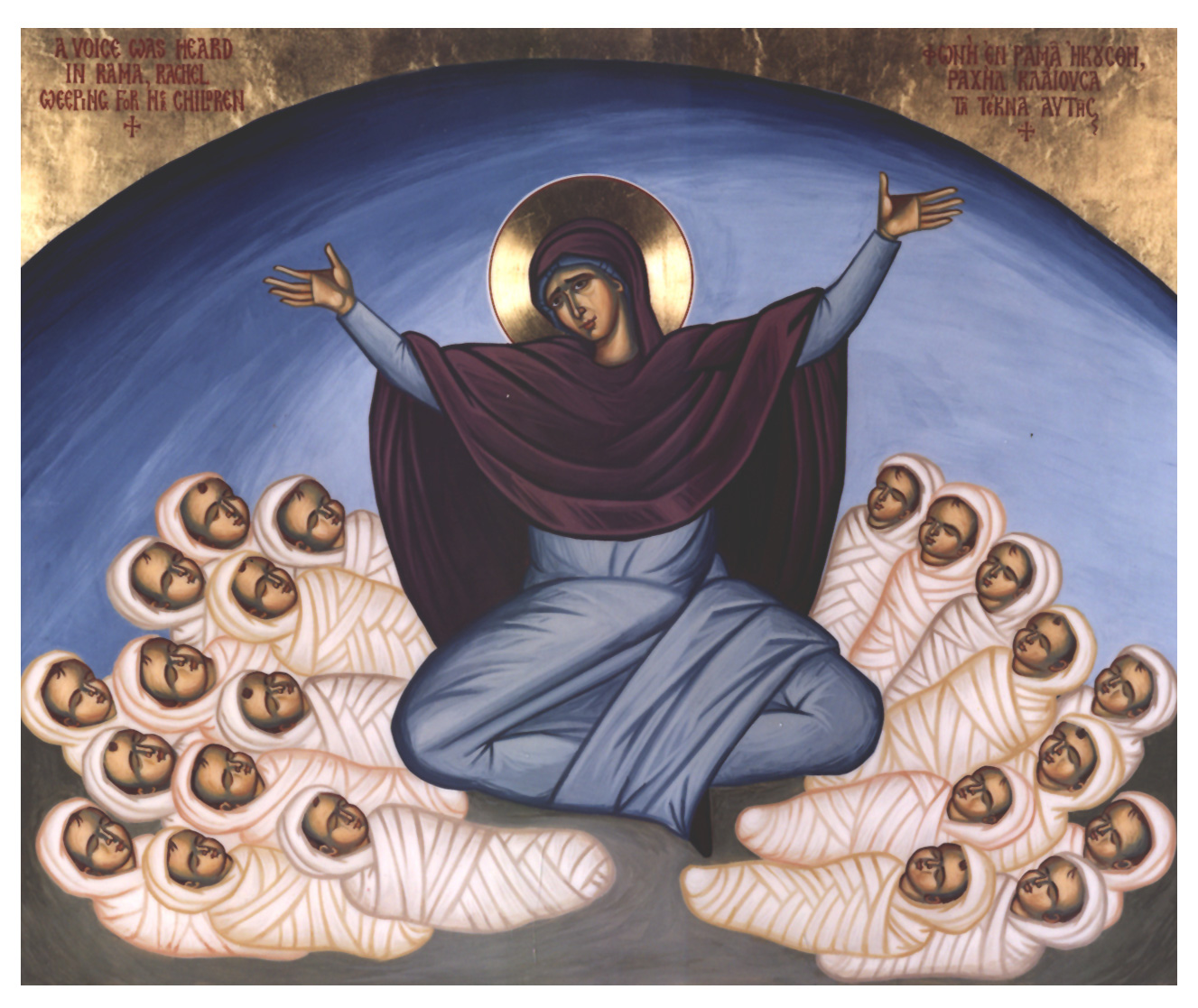
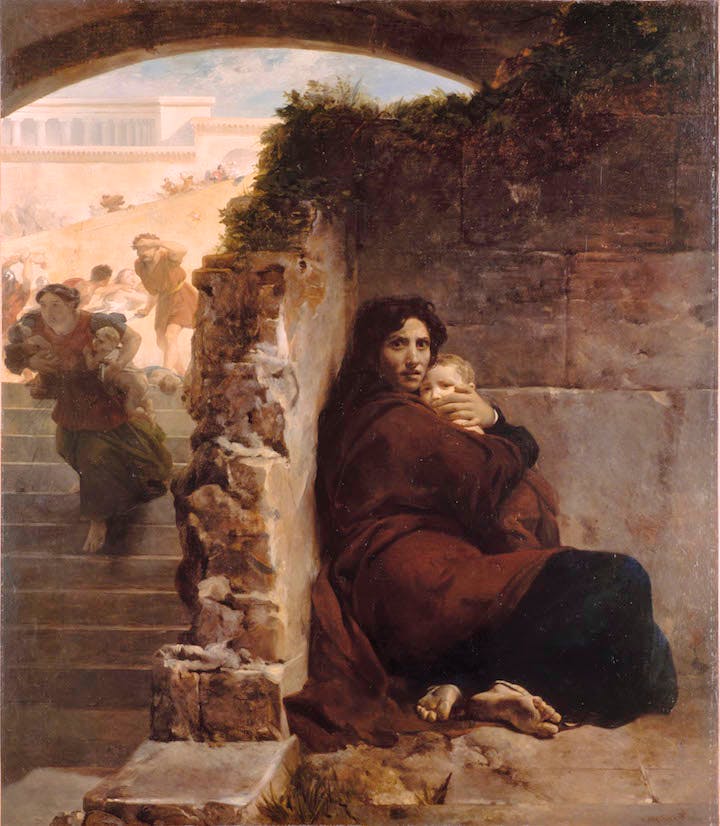


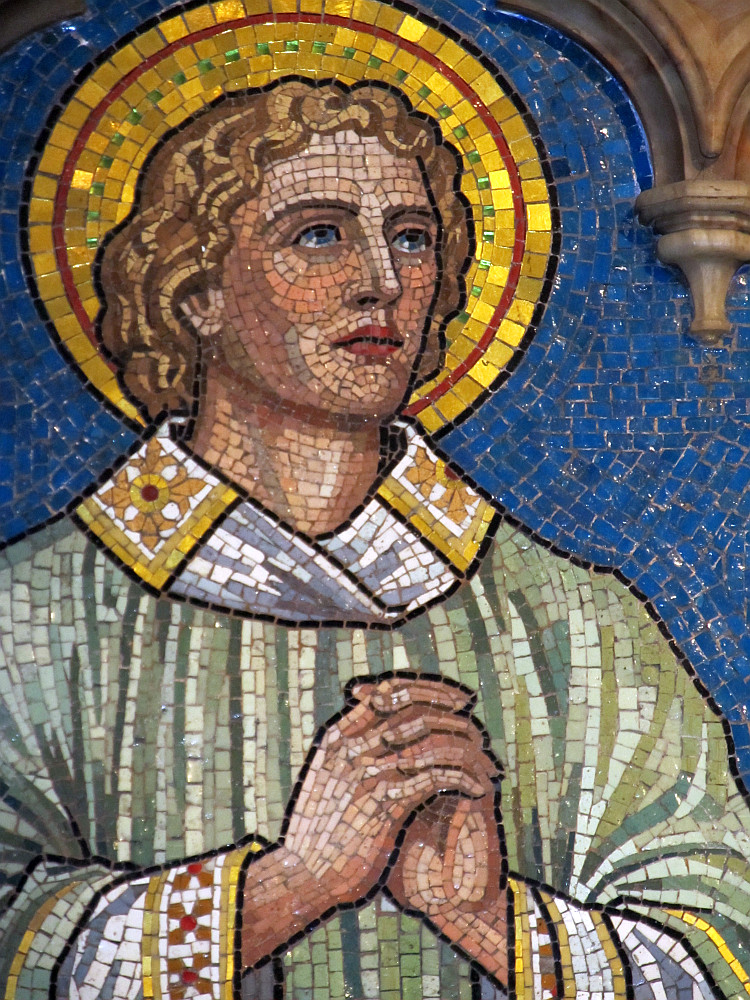
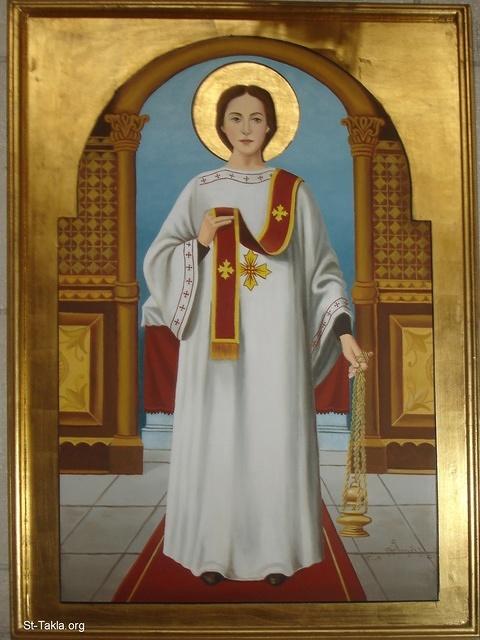





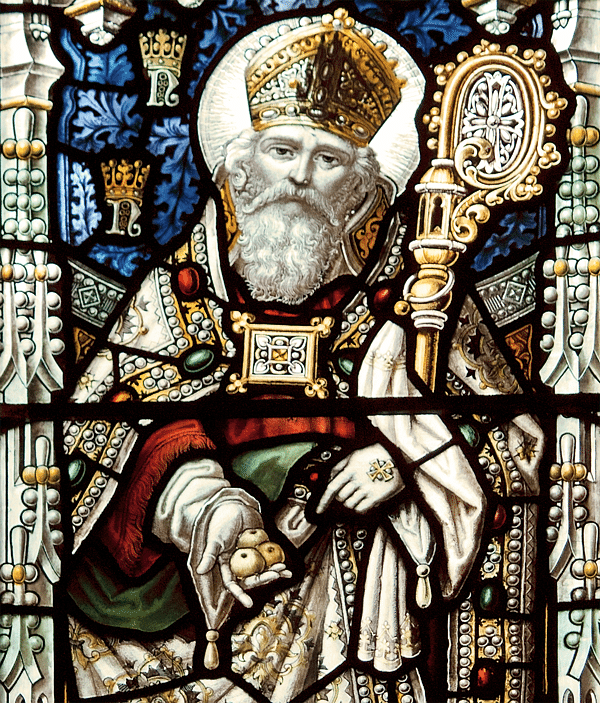


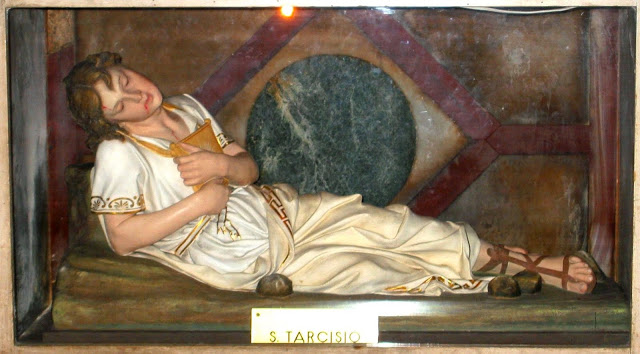

 Convinced, the priest entrusted to him the precious Bread, saying: “Tarcisius, remember that a heavenly treasure has been entrusted to your weak hands. Avoid crowded streets and do not forget that holy things must never be thrown to dogs nor pearls to pigs. Will you guard the Sacred Mysteries faithfully and safely?”. “I would die”, Tarcisio answered with determination, “rather than let go of them”.
Convinced, the priest entrusted to him the precious Bread, saying: “Tarcisius, remember that a heavenly treasure has been entrusted to your weak hands. Avoid crowded streets and do not forget that holy things must never be thrown to dogs nor pearls to pigs. Will you guard the Sacred Mysteries faithfully and safely?”. “I would die”, Tarcisio answered with determination, “rather than let go of them”.


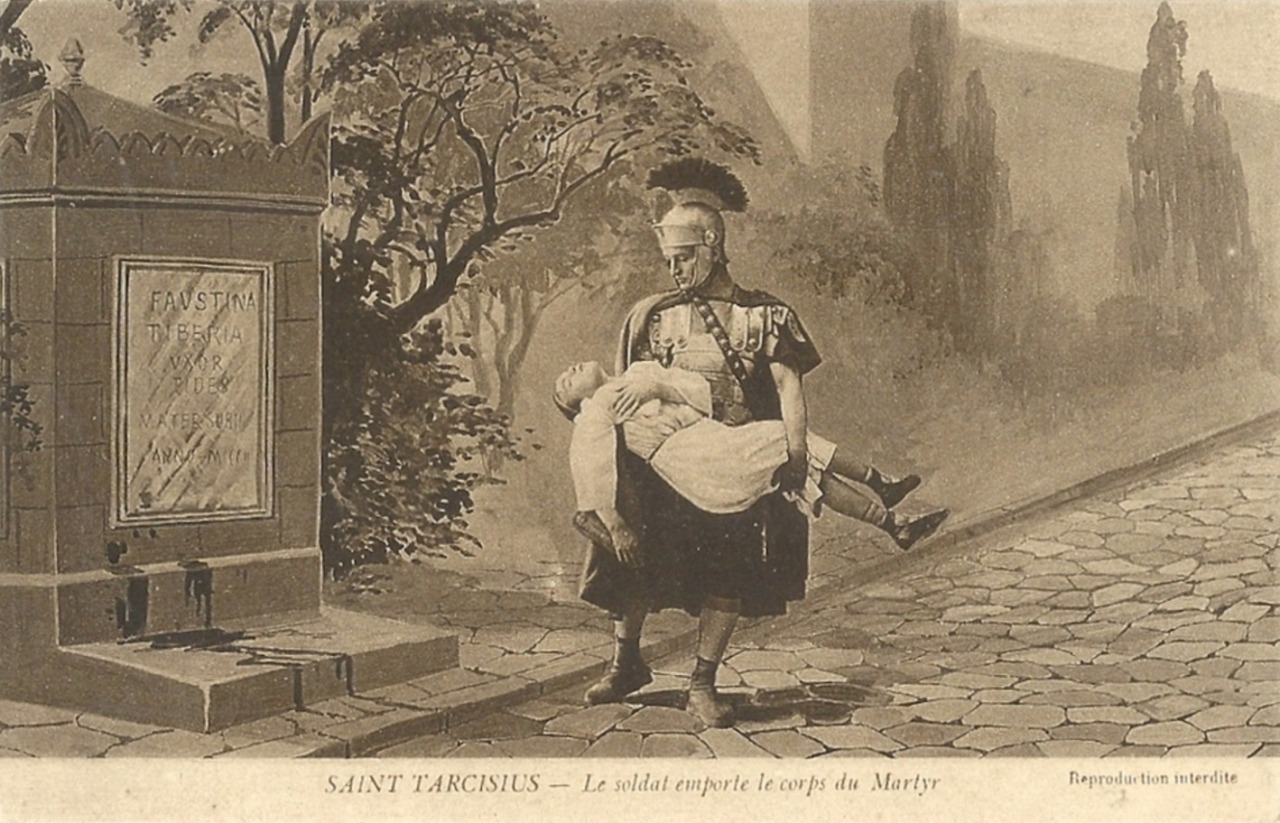


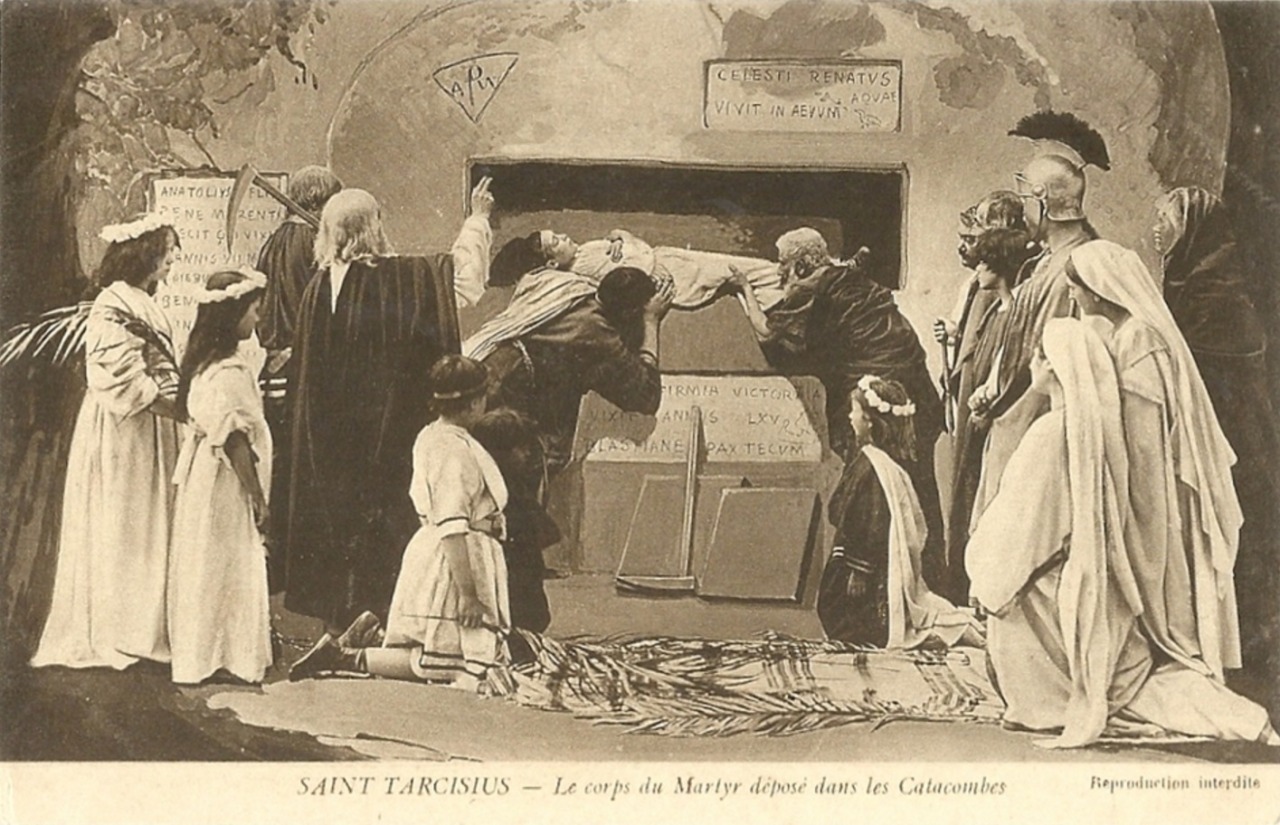





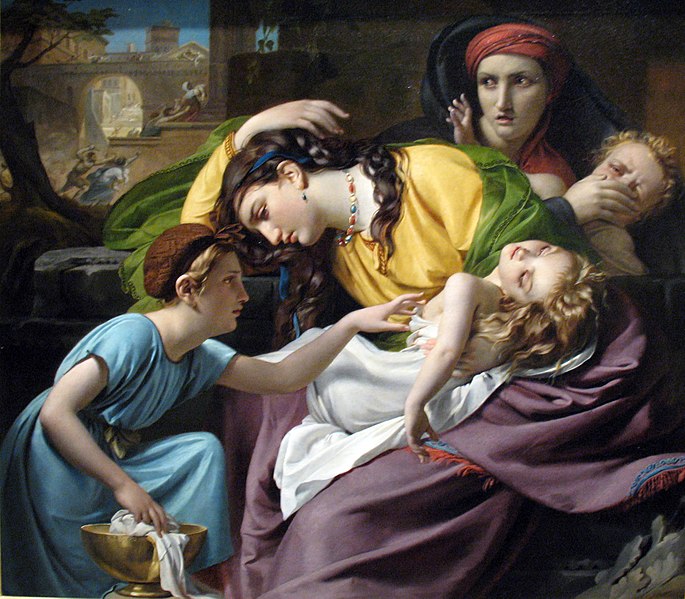

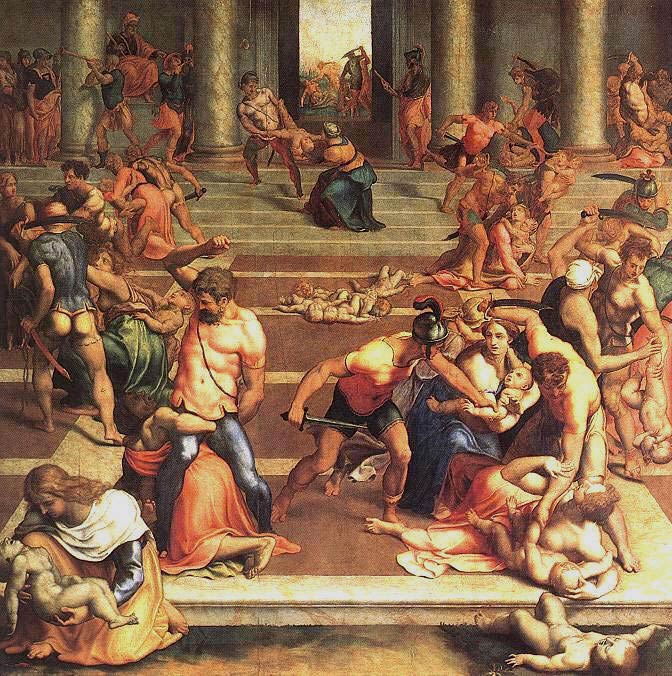


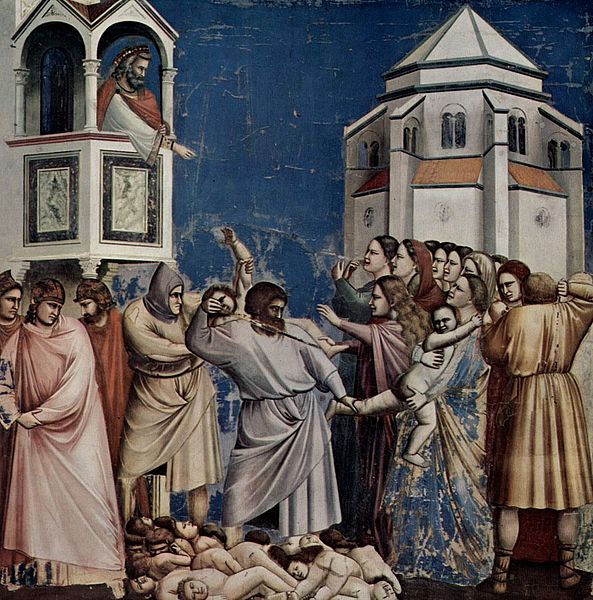

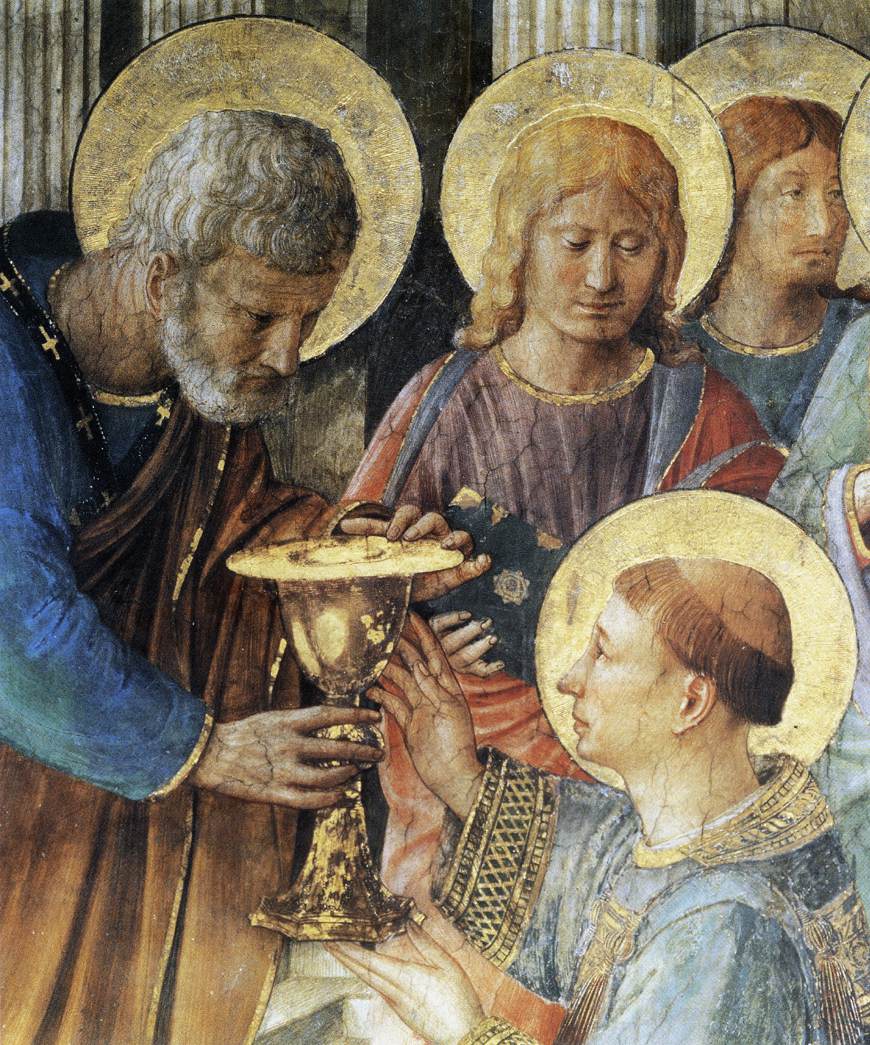










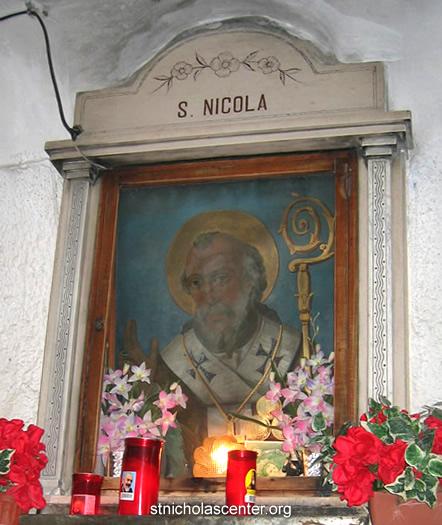
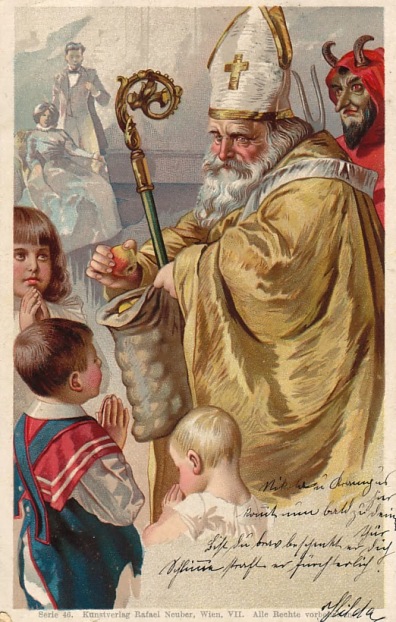

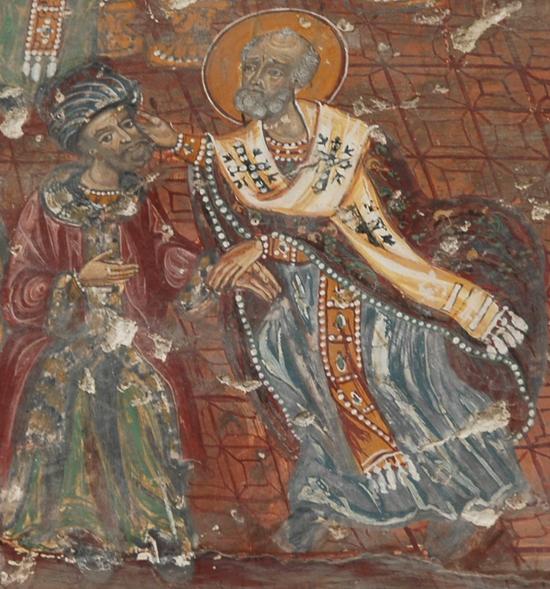


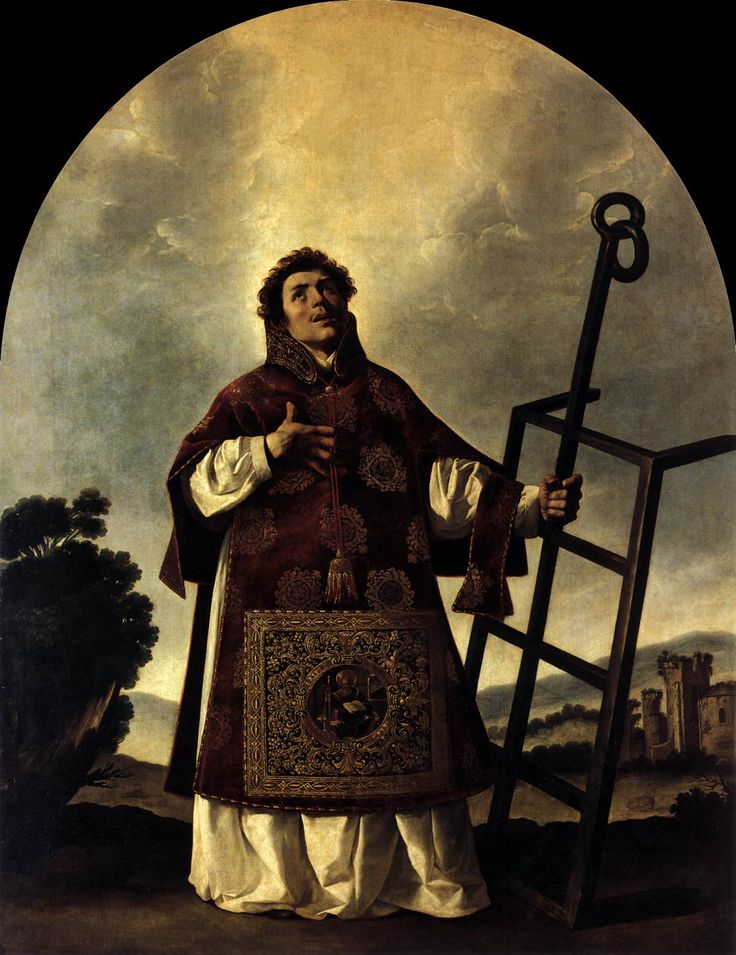











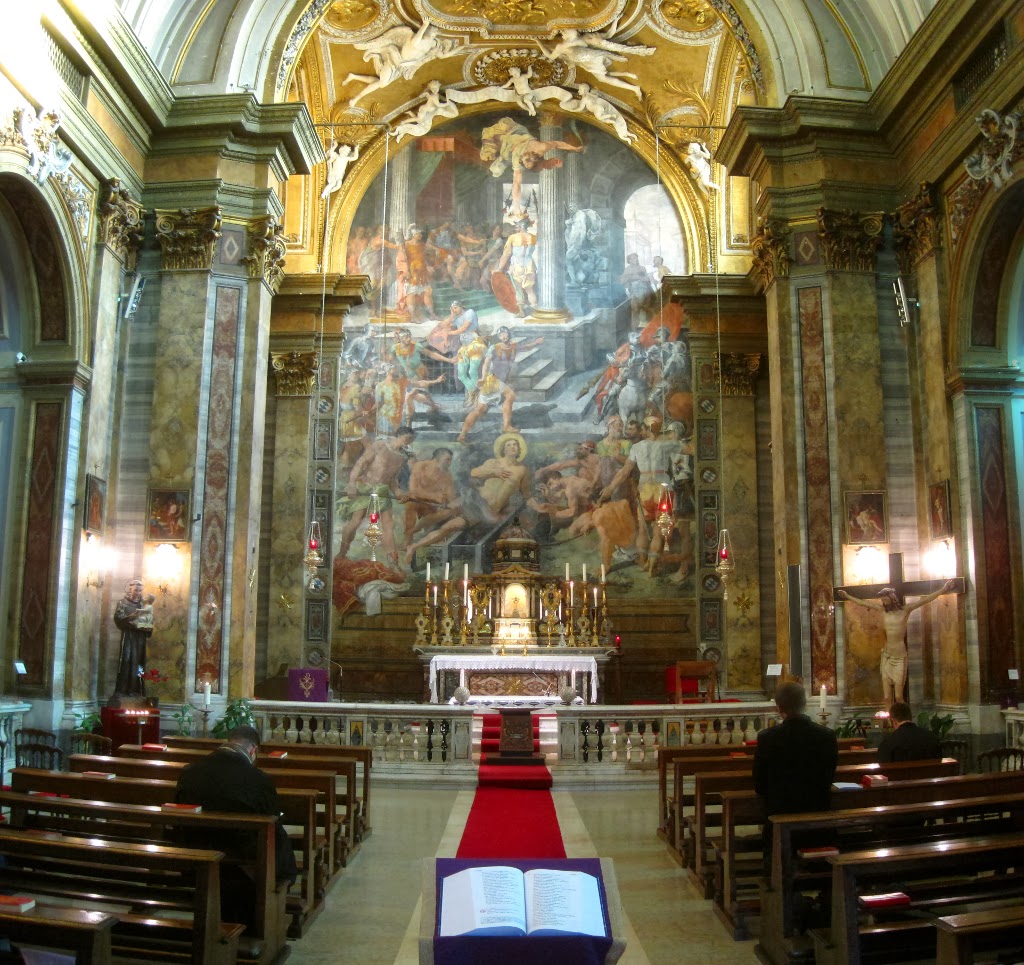






You must be logged in to post a comment.